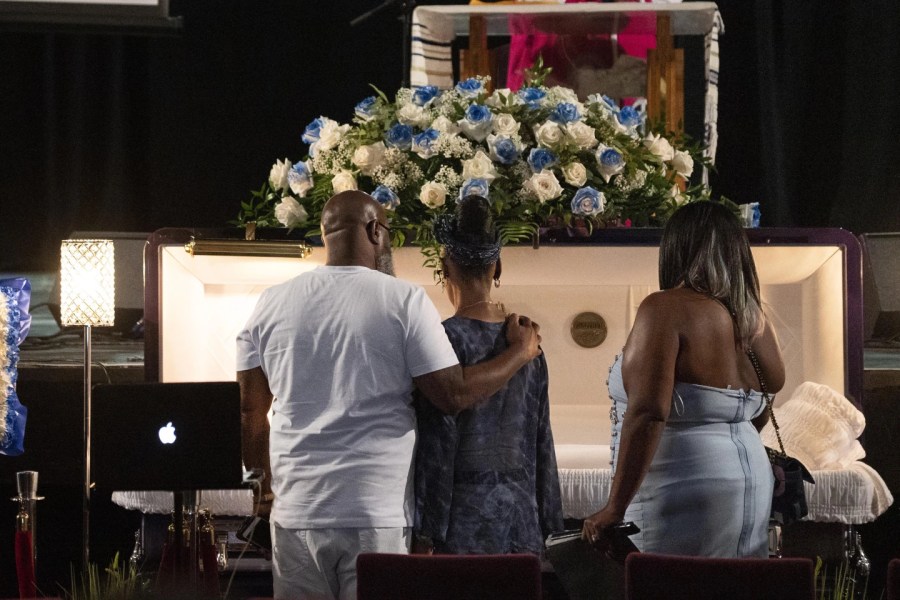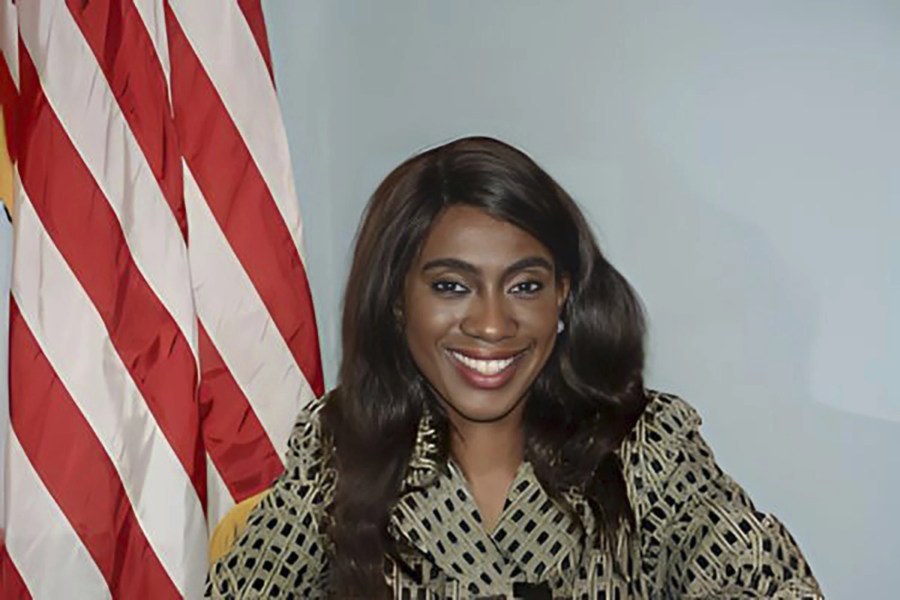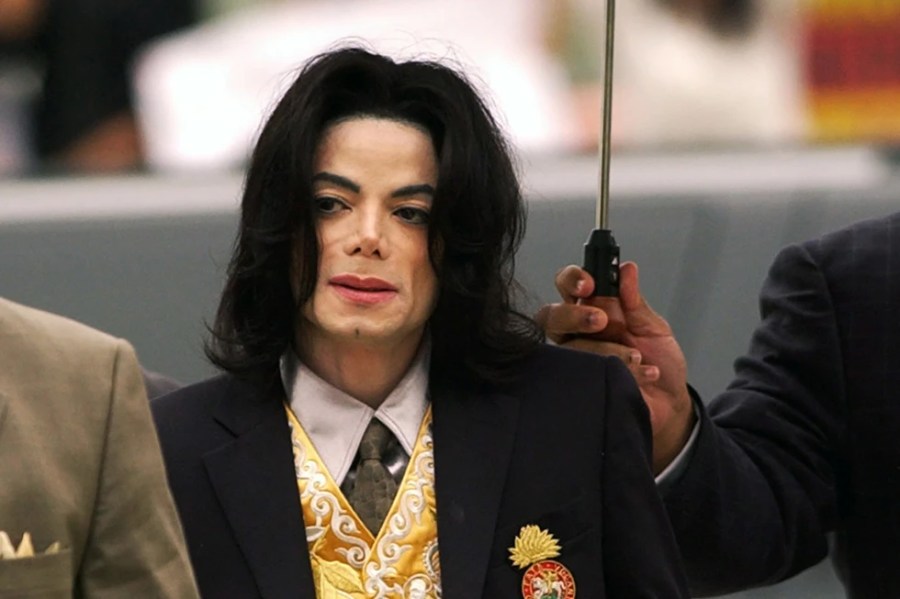Loading the player…
Regina Jackson and Saira Rao are the co-founders of Race2Dinner and Race2Community and the authors of “White Women: Everything You Already Know About Your Own Racism and How to Do Better.”
Race2Dinner experiences require white women to participate in very direct, exceedingly difficult conversations. Race2Community is a year-long anti-whiteness and community-building program consisting of a nine-week intensive built to guide white women through deep introspection surrounding their own internalized white supremacy.
The co-founders talk to theGrio’s Eboni K. Williams about how this type of program has been received and how they’re helping white women break away from being “white nice.”
The following is a transcript of their conversation.
Eboni K. Williams [00:00:09]: Welcome to theGrio. I’m Eboni K. Williams.
Williams [00:00:49]: Racist “Karens.” People of color have had to deal with these privileged and entitled white women for centuries. Some have even called the cops on little Black children who were simply doing science projects or selling lemonade. And you know that calling the police on a Black person, whether they are a child or an adult, can sometimes have deadly consequences.
But thanks to cell phones and Black folks simply being sick and tired, Karens are now being confronted and oftentimes losing their jobs because of their behavior. Joining me now are two women who are taking it a step even further to help teach white women how not to be “Karens.” Regina Jackson and Saira Rao are the co-founders of Race2Dinner and the authors of “White Women: Everything You Already Know About Your Own Racism and How to Do Better.”
They hold a nine-week community-building dinner, a series of dinners, that help white women to look inward in order to confront their own racist ideologies. Ladies, thank you both so much for being with us. Now, Regina, one could look at your work while incredible, yes, it could seem very exhausting. Why did you decide that you wanted to teach white women in this particular format?
Regina Jackson [00:02:10]: Well, the format works because white women, above all else, are socialized to be nice. And what that means is you don’t get up and walk out of a formal dinner. So, they’re captive and they’re going to stay. So, we have an opportunity to really get across a lot of our points because of their niceness.
Williams [00:02:34]: That’s really interesting. Saira, let me ask you, what was your initial reaction from white women in your circle and people, colleagues, and things like this when you rolled this program out? How was it received?
Saira Rao [00:02:49]: Well, you know, in every dinner, so we have dinners, Regina and I actually sit down at a dinner table with between eight to ten white women at a time. And we basically give them the opportunity to say out loud what they already know. And so, our book is titled “White Women: Everything You Already Know About Your Own Racism and How to Do Better” so it’s acknowledging the innate gaslighting that white women do to themselves and to other people.
Then we see all their behaviors. They get angry. Oftentimes they get defensive, as Regina said, but we call out what “white nice” looks like, and what “white nice” looks like with white women is often being silent in the face of oppression. So, what does that look like? Someone will say or do something openly racist or xenophobic. And what do they do? Zip the lip and throw away the key. I didn’t hear it. I didn’t hear it. I’m not going to say anything. So, we talk about that, what “white silence” looks like. What white woman perfectionism looks like.
Frankly, that’s what we say in the book, is that if white womanhood was a house, white woman perfectionism, their need to be perfect, is the foundation. So, they have to be the best in everything. And they stab each other in the back and stab each other’s eyes out to get to that. So white women ultimately don’t have true friendship and community with each other. And if that’s the case, they absolutely can’t have it with Black and brown women.
Williams [00:04:06]: You have to forgive me. I’m a bit shocked, quite frankly, hearing this concept that these nice white women, they just obviously, some white women are very nice. But my experience on this little show I did called “Housewives,” it just kind of maybe exemplified a different type of white woman who had no problem, Regina, getting up and walking out of the room, but that’s a different scenario.
Let me ask you this. In this nine-week program that you ladies lead, Regina, talk to me a little bit about, is there a curriculum? Is it just open-ended? What actually happens when everybody sits down for dinner?
Jackson [00:04:41]: Let me just say that we have several programs under Race2Dinner. OK. Race2Dinner is the actual dinner where white women invite us in to have dinner with them and their friends. Race2Community, the nine-week program, is a program on whiteness. That’s all they talk about is being white. What it is, how it impacts them, how it works, how it’s continued throughout our history and that’s taught by a white woman because we’re not white. I’m not white.
So, I can’t talk about whiteness. I can talk about how it impacts me. I can’t talk about how it impacts white women. And that’s what we really want white women to understand is that all of our liberation is tied together. They can’t be free unless we’re all free.
Rao [00:05:34]: There’s a qualitative difference between being nice and being kind and “white nice” is putting on pretenses. This is all fake. It’s phony, right? It’s saying one thing to your face and then doing it completely different behind your back.
A white woman feels aggrieved by you at work, and instead of talking about it with you, what do they do? They go call their boss. They call the cops. They call the manager. But we’re hoping white women can shift from this phony “white nice” that’s toxic and violent to being humane and find each other and themselves and to us.
Williams: [00:06:07] Indeed.
Check out the full clip above and tune into “theGrio with Eboni K. Williams” at 6 p.m. ET every weeknight on theGrio cable channel.
TheGrio is FREE on your TV via Apple TV, Amazon Fire, Roku and Android TV. Also, please download theGrio mobile apps today!









